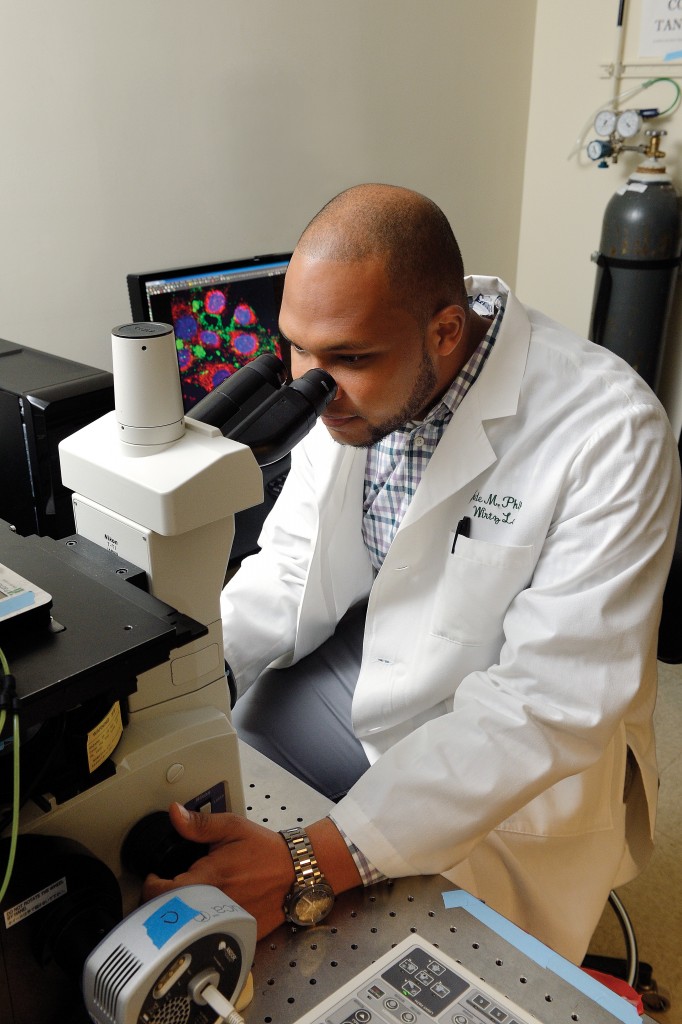 You may look younger than your years, but your cells won’t lie about your age, according to researchers in the Department of Chemical and Biomolecular Engineering.
You may look younger than your years, but your cells won’t lie about your age, according to researchers in the Department of Chemical and Biomolecular Engineering.
“Being able to determine an individual’s biological age as determined by measurements on the cellular level allows us to gain a better understanding of aging, both as a function of healthy, ‘normal’ aging and in the context of disease,” says Jude Phillip, PhD ’15, lead author on a study determining new benchmarks for aging patterns.
“Biological age is a better predictor of health and longevity than chronological age. By knowing our biological age, we can make the appropriate changes with regard to lifestyle or therapeutic interventions,” adds Phillip, who worked in the lab of Denis Wirtz, the Theophilus Halley Smoot Professor of Engineering and Johns Hopkins University vice provost for research.
Previous cell biological age tests focused on biochemistry, such as genetic makeup and epigenetics. Phillip’s tests focused on biophysical measures, such as how cells moved, gripped their surroundings, or self-repaired, or their general appearance. He used human dermal fibroblasts, cells below the skin’s surface responsible for repair.
“A combination of biophysical features better predicted biological age than two biochemical features,” Phillip says.
The study also suggested that correlations between biological cell age and chronological age in men and women differ. In men, biological age was closely correlated to chronological age throughout their life spans. In women, that correlation lasted until women reached their early 30s, when biological age shot up above chronological age. By their 70s, though, the two age measures were once again more closely correlated.
“Using this tool in collaboration with Jeremy Walston of the Johns Hopkins University School of Medicine, we are now working on identifying early cell markers of frailty, which involves the progressive decline of multiple organ functions,” Wirtz says.
Phillip’s work could also help improve skin graft matching and provide a more accurate prescreening platform for therapeutics or cosmetics. Both Phillip and Wirtz are affiliated with the Johns Hopkins Institute for NanoBioTechnology.
Listen to a podcast of Jude Phillip explaining this research.




